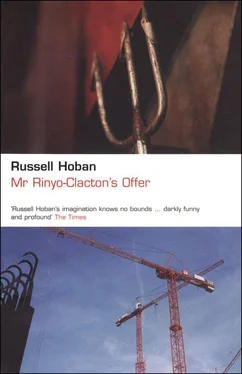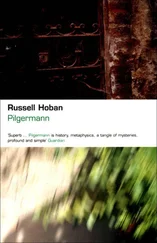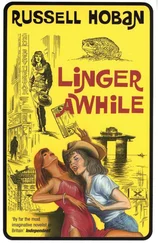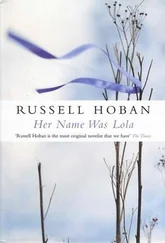‘Everything. Can we meet?’
‘I’m not sure.’
‘God! You sound so hostile!’
‘Well, as you said, Thanatophile, I’m chained to the rock of my inadequacy.’
‘Look, this is a strange thing we’ve got ourselves into but we can still talk, can’t we? You like talking to me sometimes, I can feel it.’
‘Which reminds me, you’re probably recording this very conversation from one of those bugs I haven’t found.’
‘Some people are voyeurs; I’m also an auditeur, I can’t help it, and I like the sound of your voice.’
‘Well, you can get your jollies playing this back but I need not to be bothered by you for a while.’
‘Jonathan…’
‘What?’
‘This could be the last time.’
‘You mean you intend to harvest me already? All the more reason to stay away from you.’
‘I have no intention of harming you. I humbly ask you as a friend — and in some mysterious way we are friends — please give me an hour of your time tomorrow.’
Somehow, the balance of power was changing; doomed as I was, I was becoming the stronger one. Perhaps I wasn’t doomed? ‘All right, meet me in Earl’s Court Road in front of the tube station tomorrow afternoon at half-past five. Come by underground, maybe you’ll make new friends on the way.’
‘Five-thirty — I’ll be there.’
‘What is it with you and him?’ said Serafina. ‘I’m beginning to think that the buggery established a real bond between the two of you.’
‘There’s certainly something between us and I can’t say I understand it.’
‘Let me know if you ever do.’
‘You’ll be the second to know.’
Serafina made tea for us, camomile, then we went to bed with a space between us. It took me a long time to fall asleep. I kept hearing him say, ‘This could be the last time.’
I’d told Mr Rinyo-Clacton to come to Earl’s Court by underground because I wanted him to be down among non-millionaires in the rush hour, wanted him to be uninsulated by his wealth when he came to our meeting. He’d sounded so humble on the telephone! Until now, when I thought about him, it was mostly him in relation to me, not him in relation to himself and whatever made up that self. Now I found myself wondering what it was like to be Mr Rinyo-Clacton when he woke up in the morning and when he went to sleep at night. Katerina had said there was fear in him. Of what? Was it possible that he could be afraid of me? Had he ever actually killed anyone? I had no facts about him except those that were part of our brief history. He’d said he was serious about killing me but he’d also said, in his new humble mode, that people change, that he intended me no harm in this meeting that could be our last.
Serafina was out doing the shopping; the flat was full of dumbness and irresolution and I had a lot of time to get through before the meeting with Mr Rinyo-Clacton. I needed some music and I was cruising the CD shelves when I found myself humming the opening of the second movement of Tchaikovsky’s Symphony No. 6, the Pathétique, to which my mind was singing:
Earl’s Court at half-past five today —
what is it that he want to say?
‘Give me a break,’ I said, but I did want to hear that music and I didn’t have it on CD. There was a tape somewhere in the flat so I rummaged in boxes, behind books, through random stacks of this and that and ad hoc heaps of clutter for about an hour and a half while hot waves of aggravation flooded through me. Finally I gave up and went to the Music Discount Centre by South Ken tube station and bought the recording by Mikhail Pletnev and the Russian National Orchestra.
Funny, I thought as I left the shop and walked into the unblinking daylight, here I’ve got this poor bastard’s heart and soul, his life and death really, all digitalised on a little disc and I can play it straight through or start it in the middle or repeat each track several times or jump up and down on it and throw it in the dustbin. Destroy this one and there are hundreds of thousands more, recorded by every orchestra that’s internationally known and some that aren’t. The man himself is dead and gone but his misery is alive and well and available worldwide. T-shirts too, undoubtedly.
When I got home I slid the disc into the player and heard first the low hum of the darkness where the soul of the thing lived, then the bassoon slowly dragging itself all unwilling into the light. Oh, what a sad bassoon!
‘Kindred spirit?’ said Serafina, back from the shops.
‘He certainly knew what trouble was.’
‘Don’t we all.’
‘Yes, but not many of us are advised by a so-called “court of honour” to kill ourselves and then go ahead and do it.’
‘Look who’s talking.’
‘I wasn’t pressured into this thing I’m in.’
‘This thing we’re in,’ she said over her shoulder as she put things in the fridge. ‘Poor old Pyotr Ilyich lived in the wrong time and place for being queer. If he were alive in London now he’d be knighted and completely at home in the world of the arts and he wouldn’t need to compose a pathetic symphony.’
‘The word that Tchaikovsky used, according to my Oxford Dictionary of Music, was patetichesky, which means “emotional” or “passionate” rather than “pathetic”.’
‘Whatever. He was still a pathetic man.’
‘Fina, why do you sound so hostile?’
‘Because sometimes I think that when you met your new friend you connected with the real you. Maybe there are still bugs in this place, so I’ll say it loud and clear, CAN YOU HEAR ME, MR RINYO-CLACTON? SOMETIMES I THINK YOU AND JONATHAN ARE THE REAL ITEM AROUND HERE.’ Speaking to me again, she said, ‘If we both come out of this alive I might eventually get over your womanising but this other thing could really finish us.’
The music seemed to be begging forgiveness and looking for a way ahead. I put my arms around Serafina but she made herself rigid and turned her face away from me. ‘Maybe, Jonathan,’ she said, ‘you’ve got decisions to make.’
‘No, I don’t — the only future I want is one with you. What happened with me and him wasn’t primarily a sexual act for me.’
‘What was it then?’
‘You were gone and I didn’t think you’d ever come back and I felt so low and lonely …’
‘Go on.’
‘I wanted to be relieved of the burden of myself, of my manhood — I wanted someone else to take charge of me.’
‘And what now? Are you expecting me to take charge of you?’
‘No.’
‘Well, what have you got in mind? What are your plans for the future?’
Something made me hold back from talking about the future until after my meeting with Mr Rinyo-Clacton. ‘I haven’t done that much planning.’
‘Now might be a good time to begin. I’m off to the Vegemania.’ As always when she went out, she left an absence behind her.
Tchaikovsky had apparently pulled himself together and was marching along purposefully with a snappy allegro molto vivace as if he was going in to win. I knew how it ended so I stopped the music, made myself a cup of tea, sat down at my desk, and began to write this.
Early dark, November dark, November lamps and faces and shop windows and footsteps sharp and cold. People bursting from the silent-roaring ocean of the day and swimming upstream like salmon into the November evening. The finale of the Pathétique, the adagio lamentoso that I hadn’t listened to at home, was playing in my head and it seemed to me the proper soundtrack for Pizza Huts and Taco Bells and big red 74 buses novembering down the Earl’s Court Road. Fifty-three years old he was when he died, Pyotr Ilyich, nine days after conducting the première of the Pathétique in October 1893. Where was that court of honour now, that told him death would be a good career move?
Читать дальше












